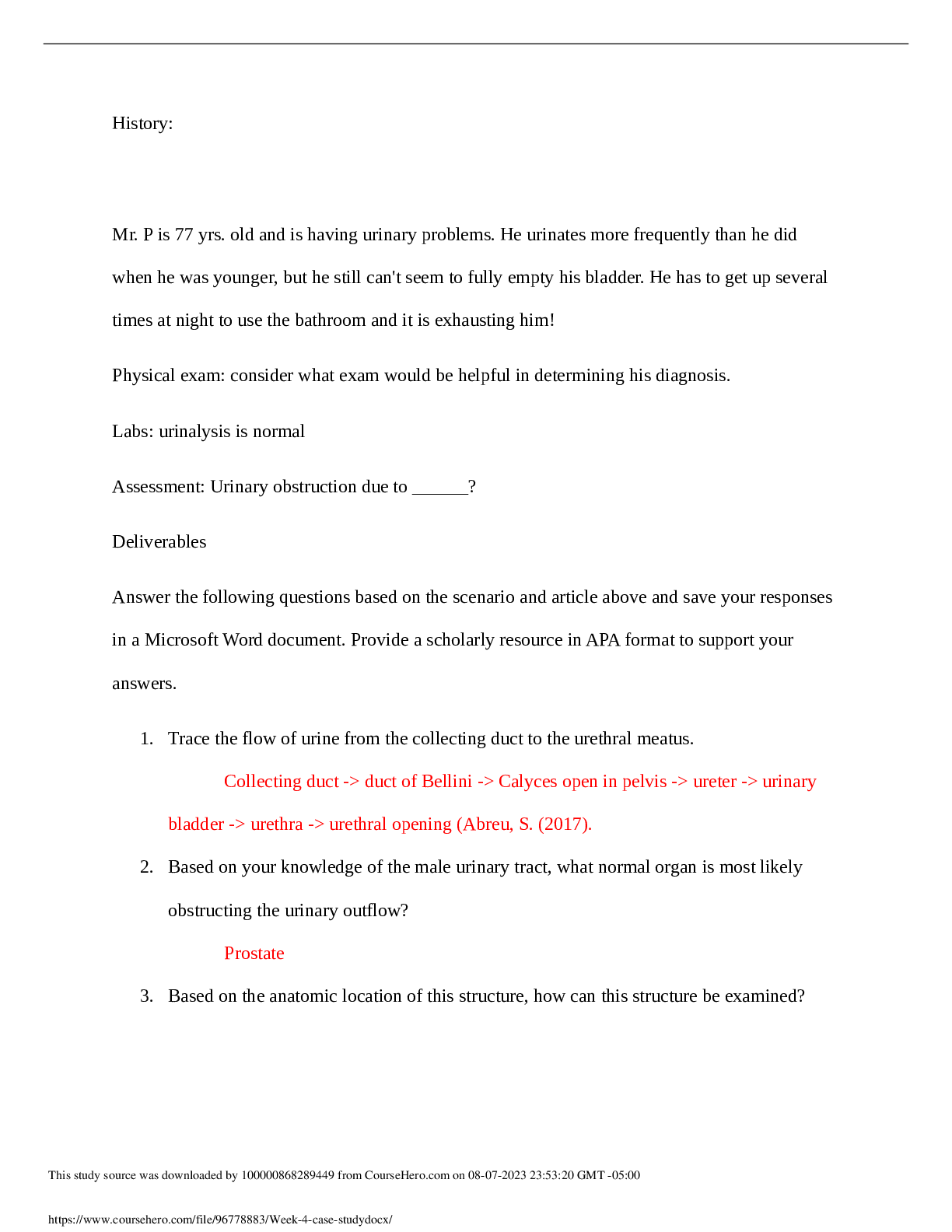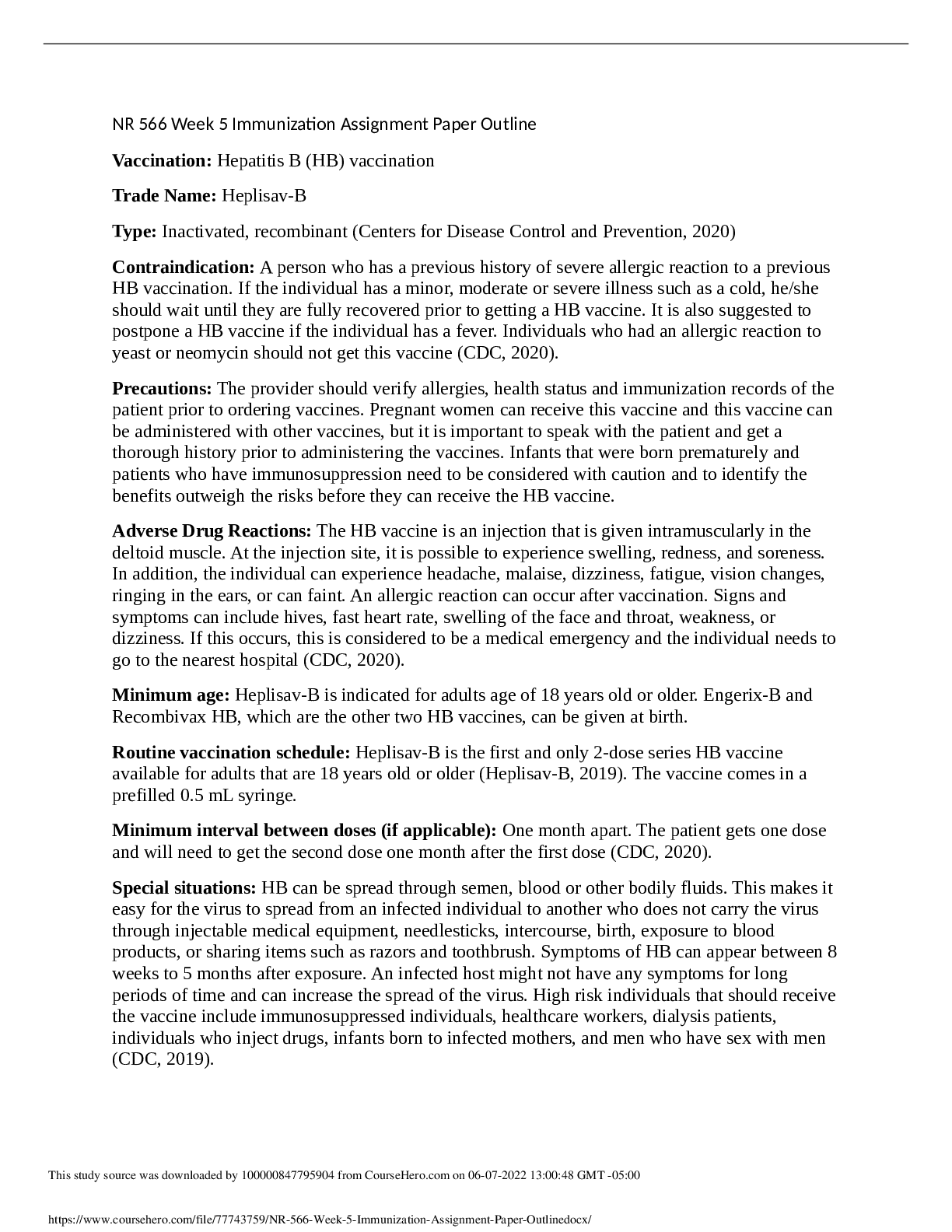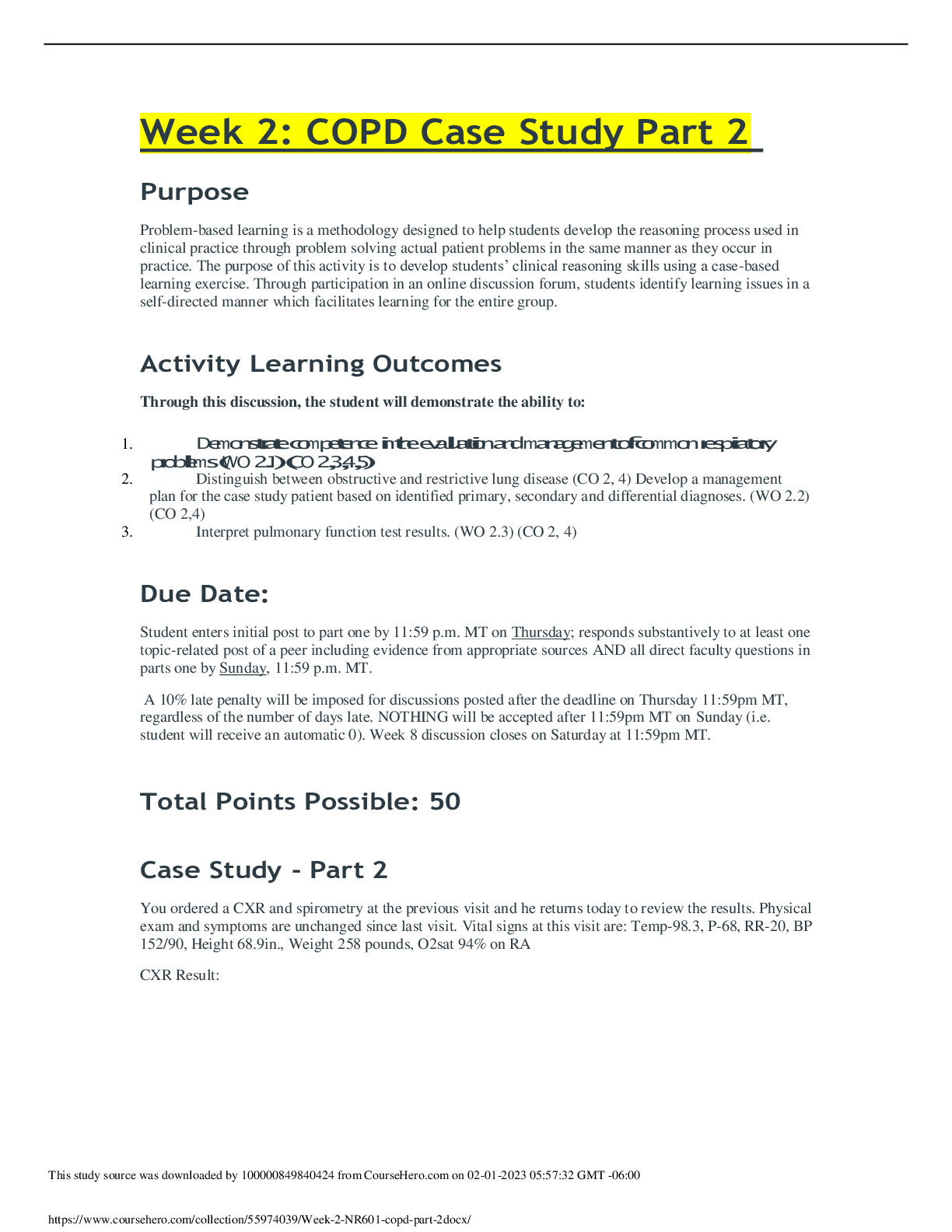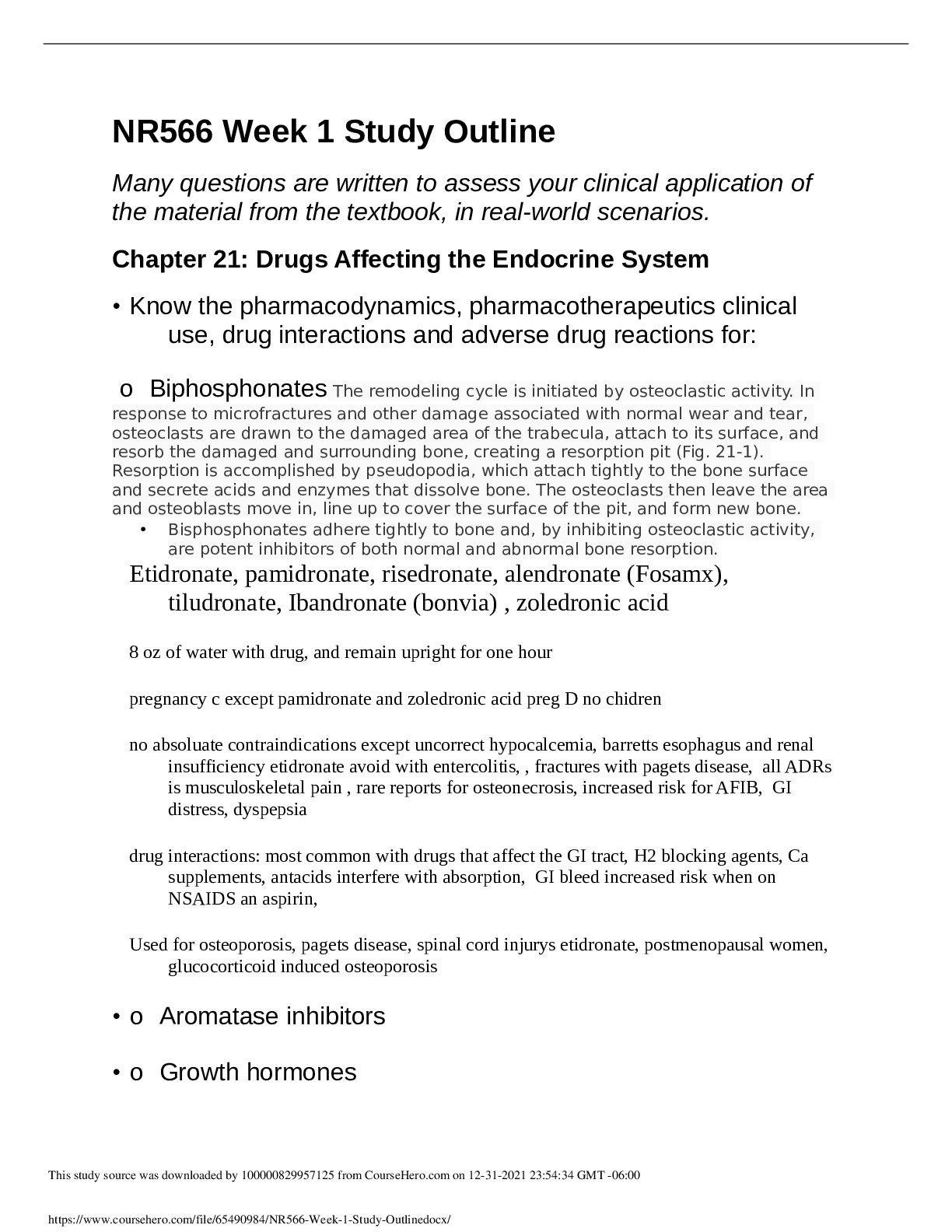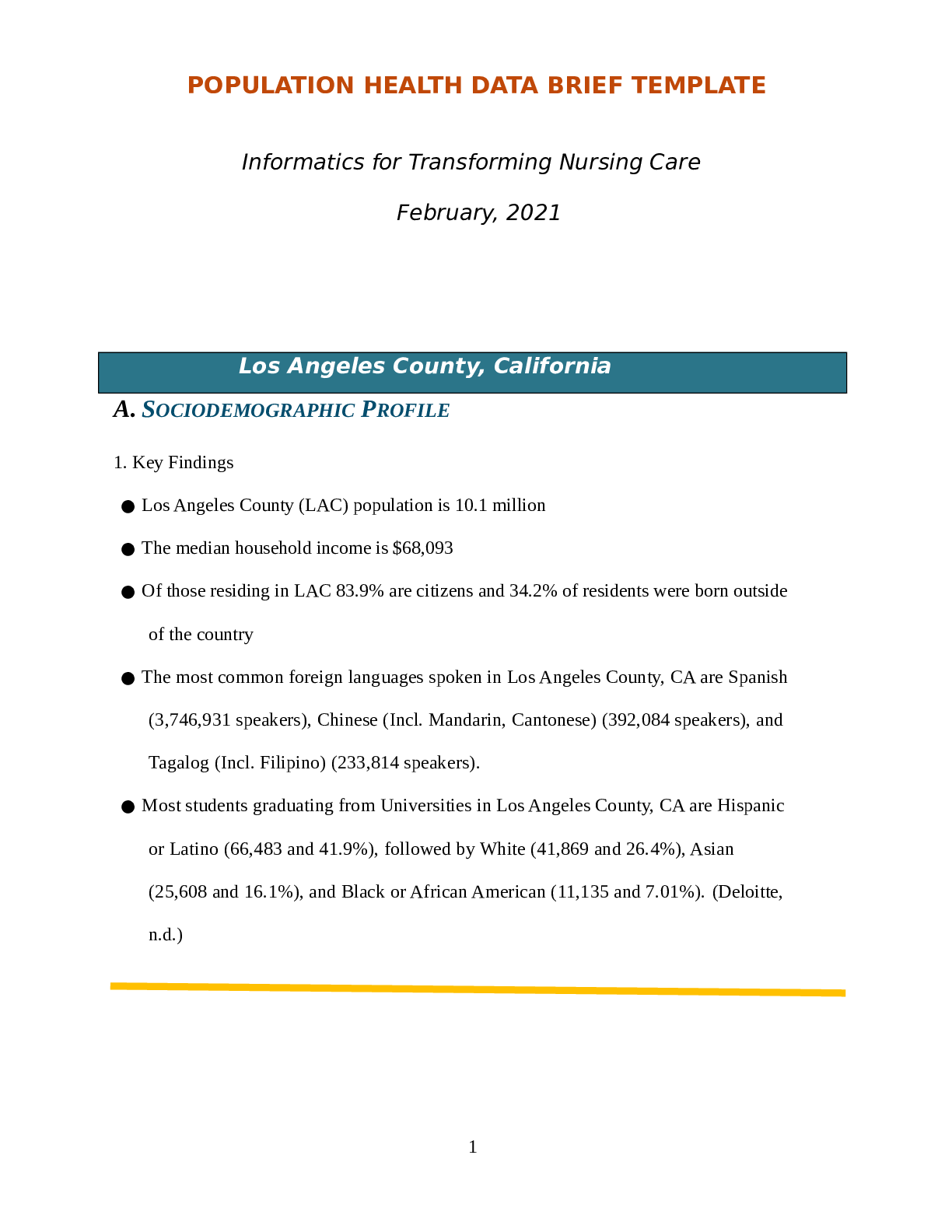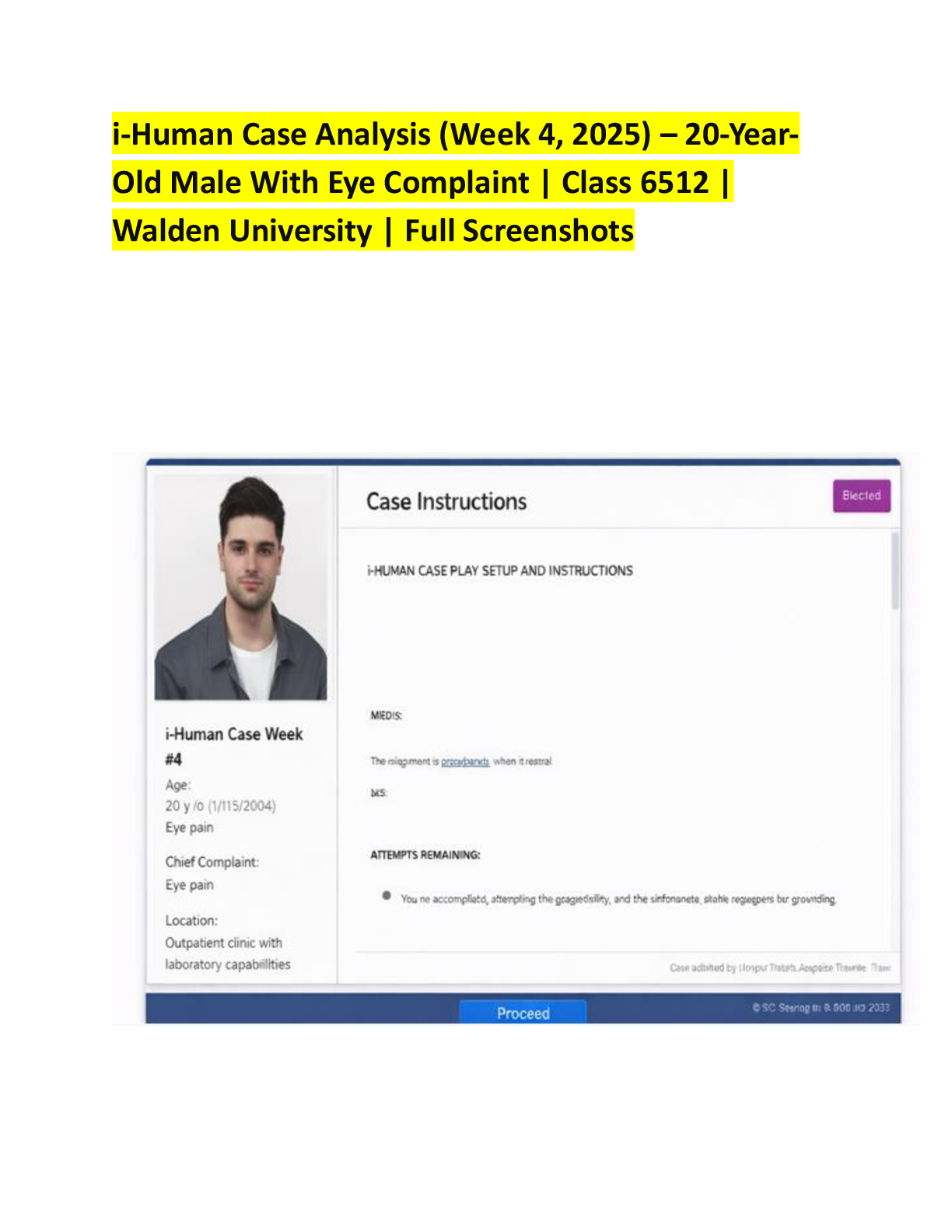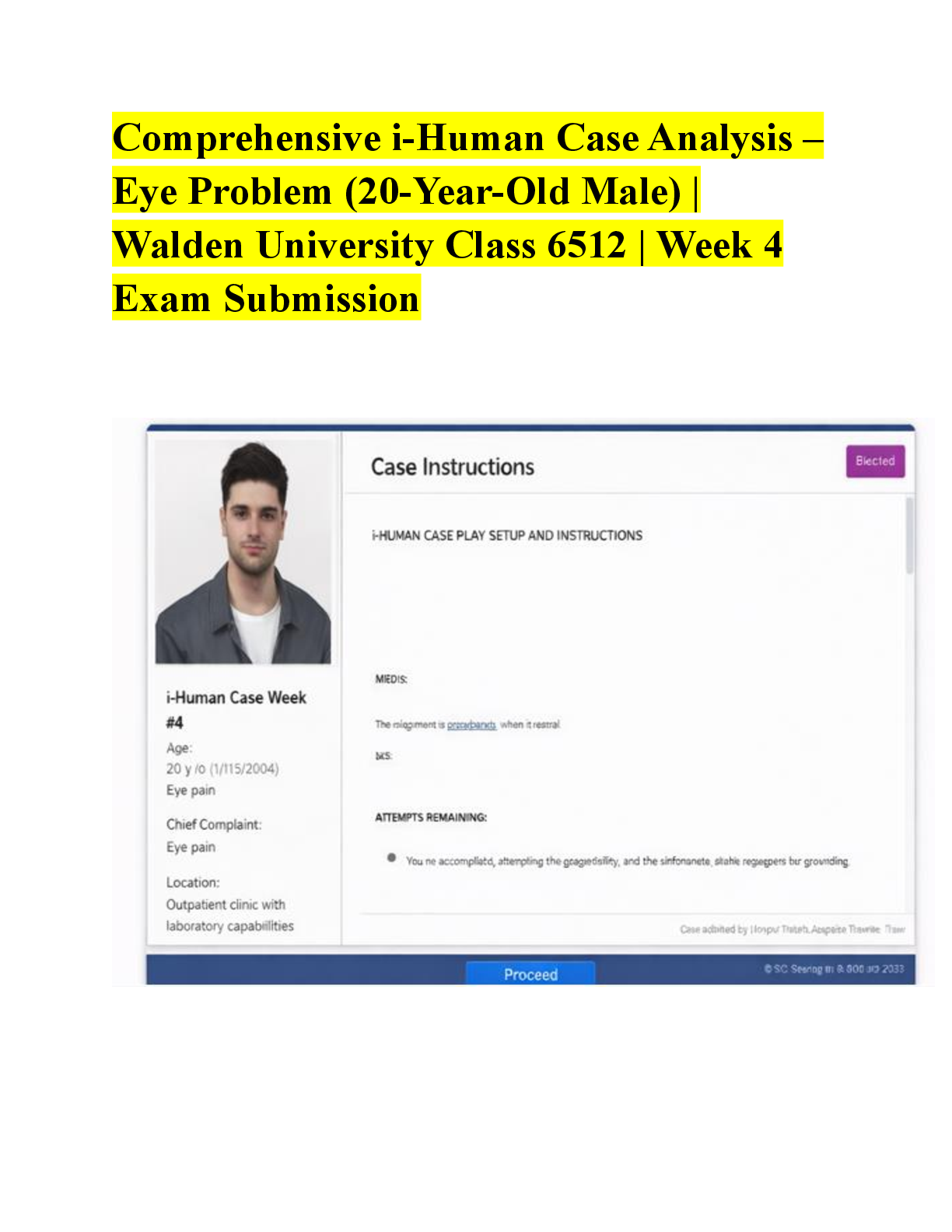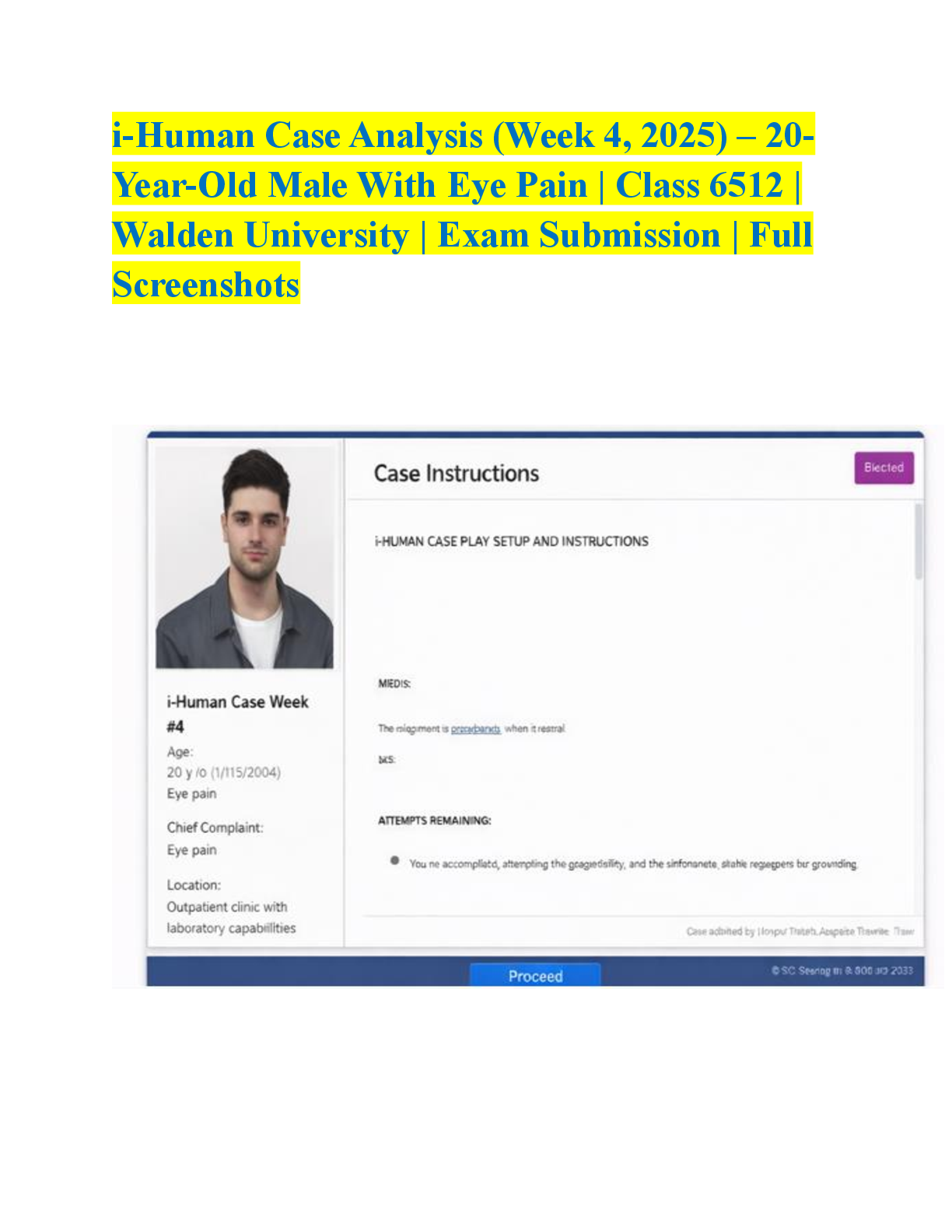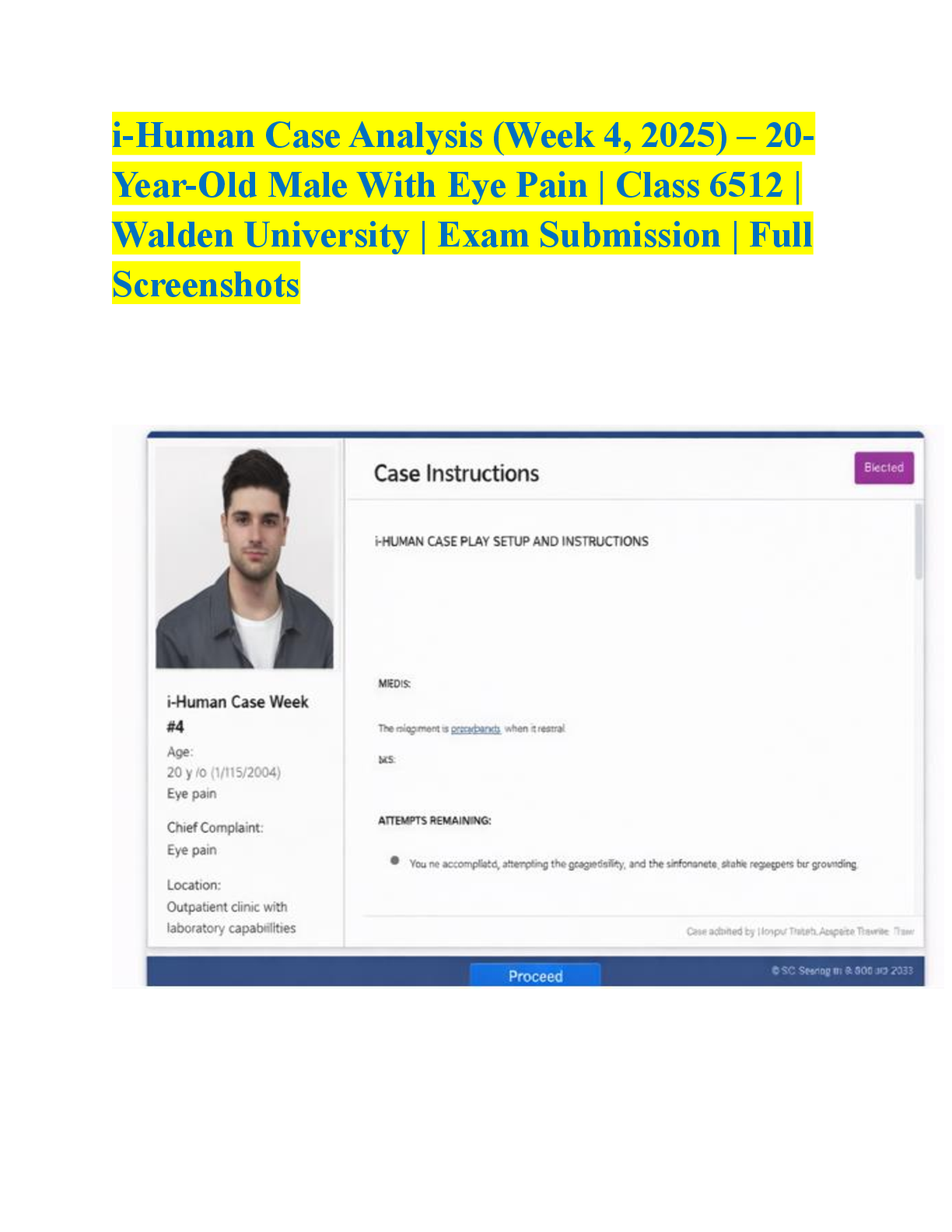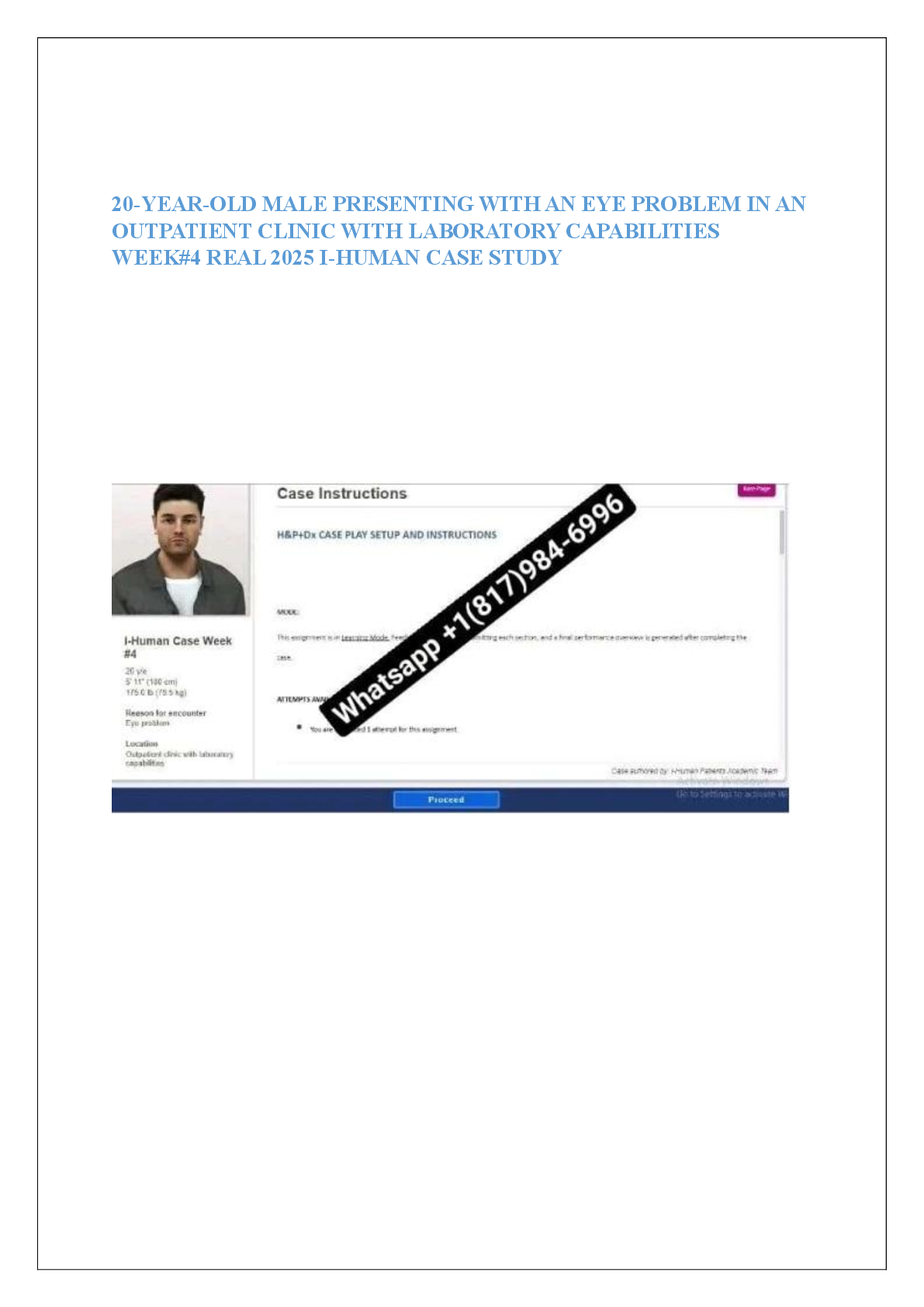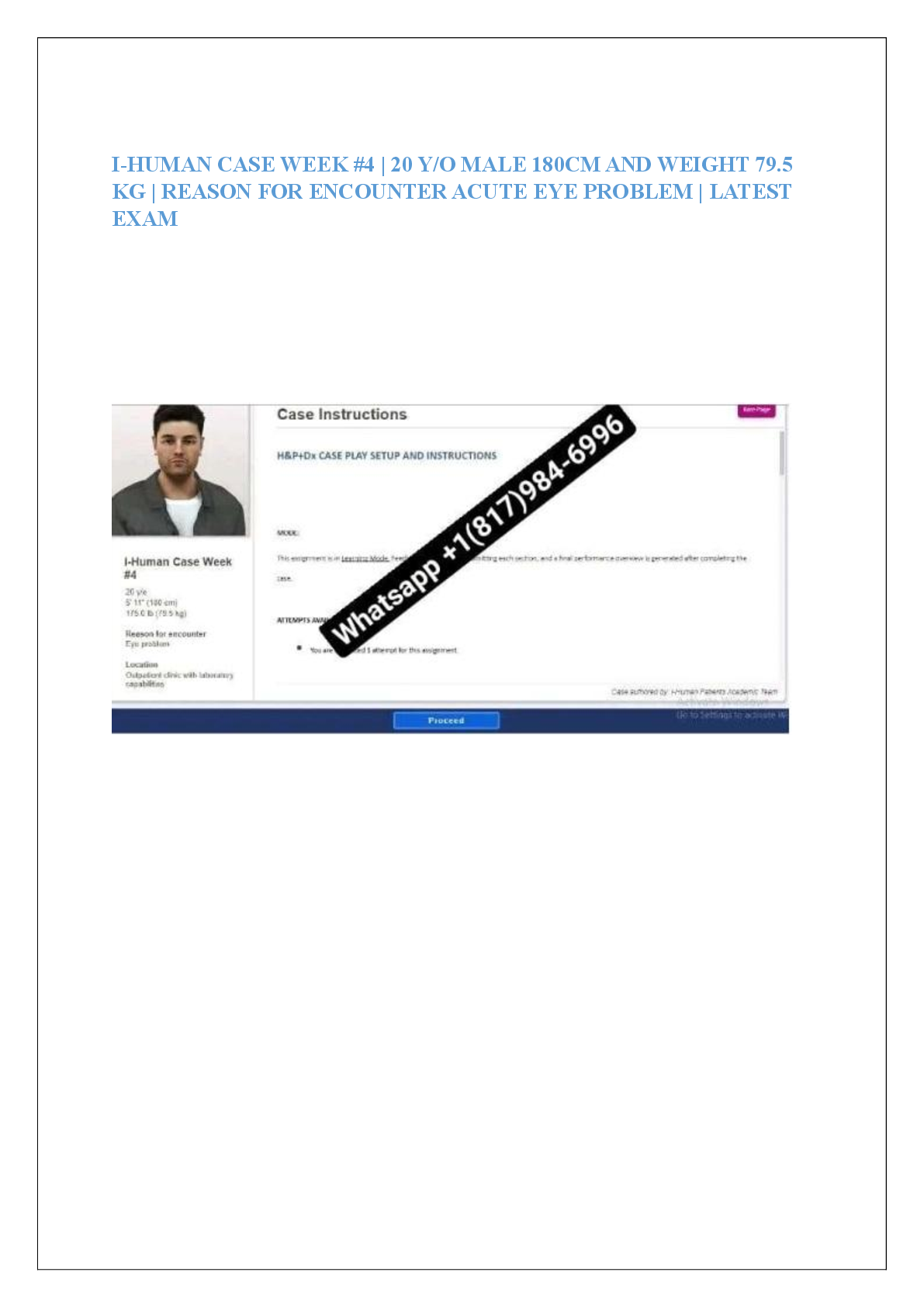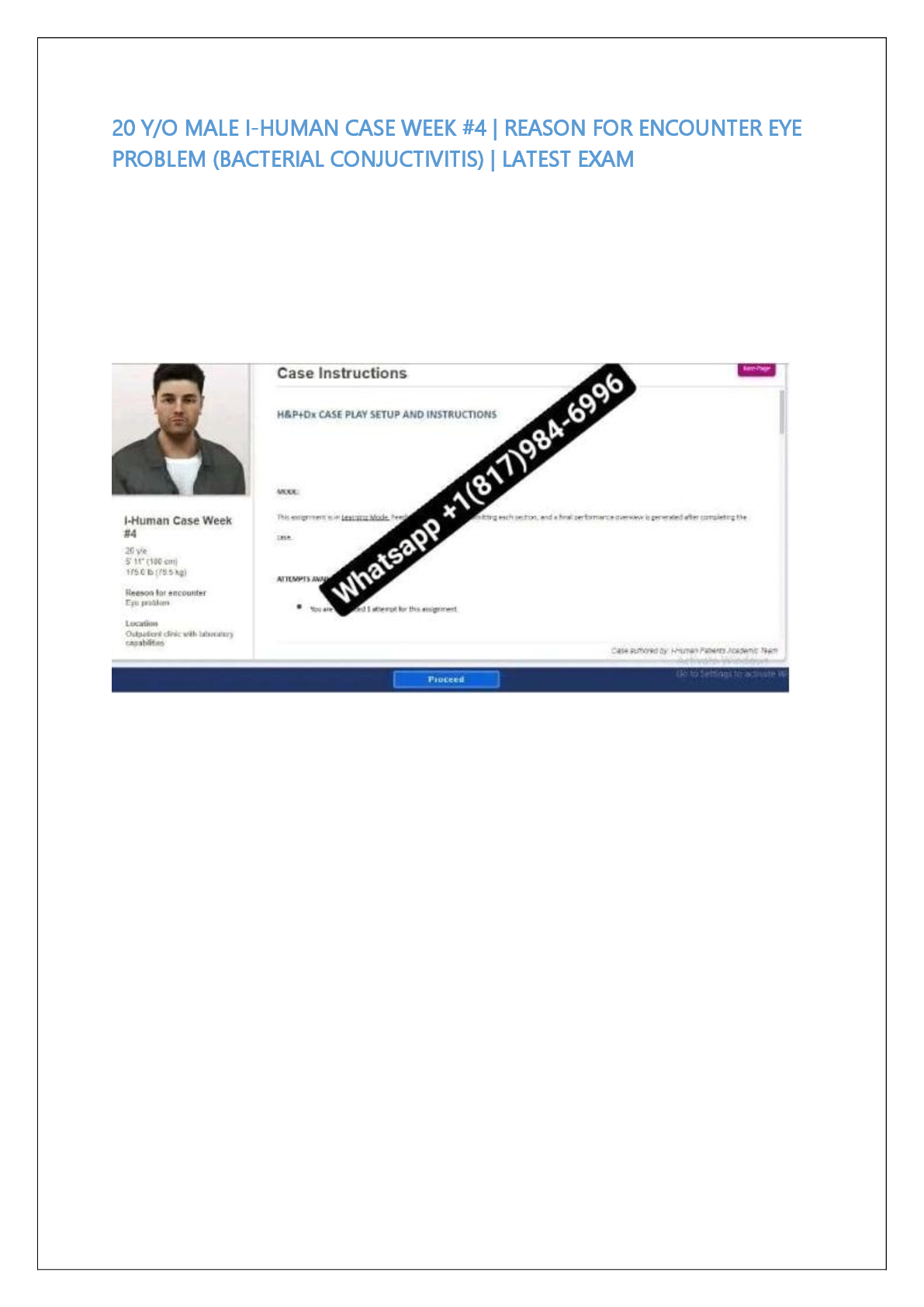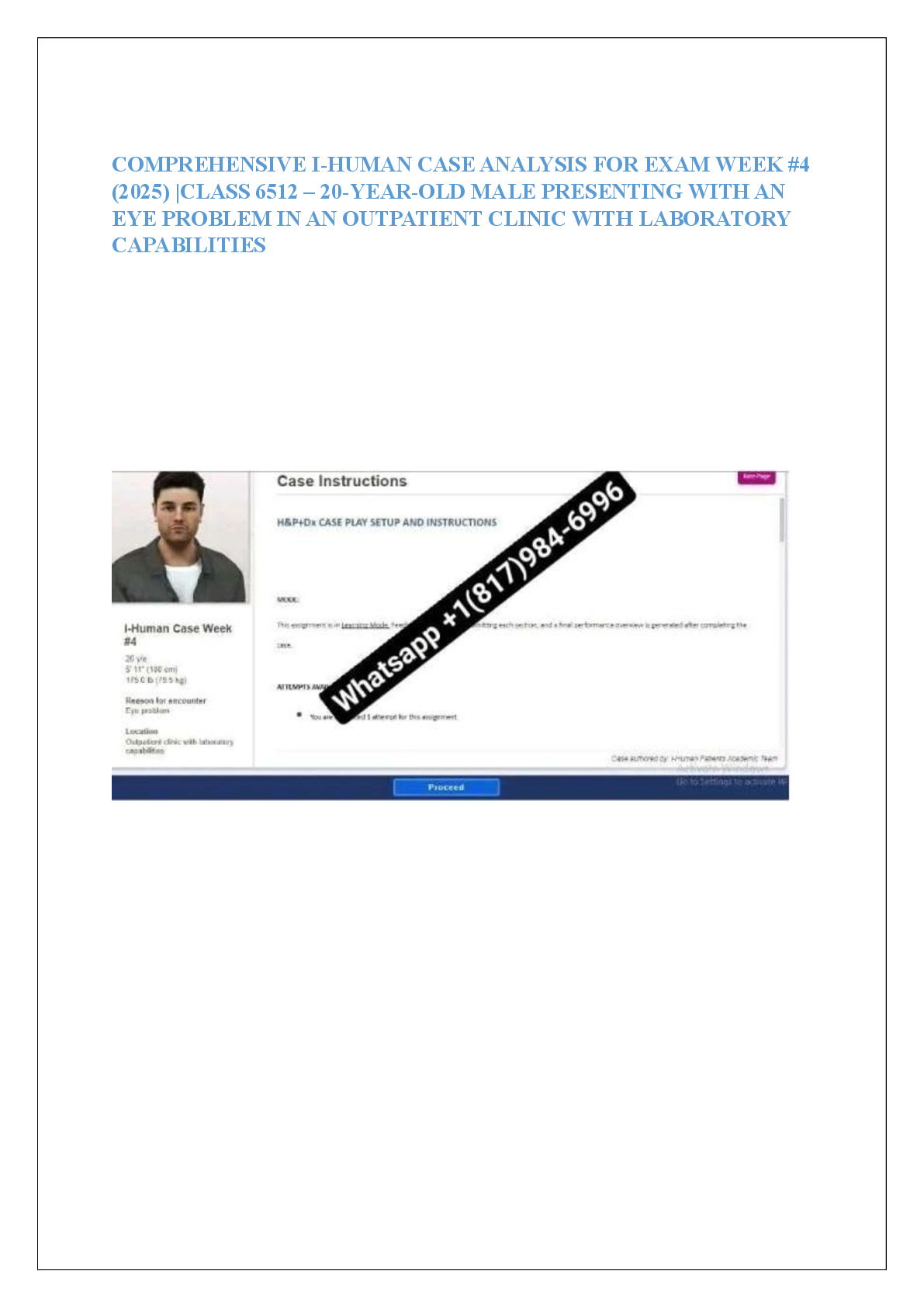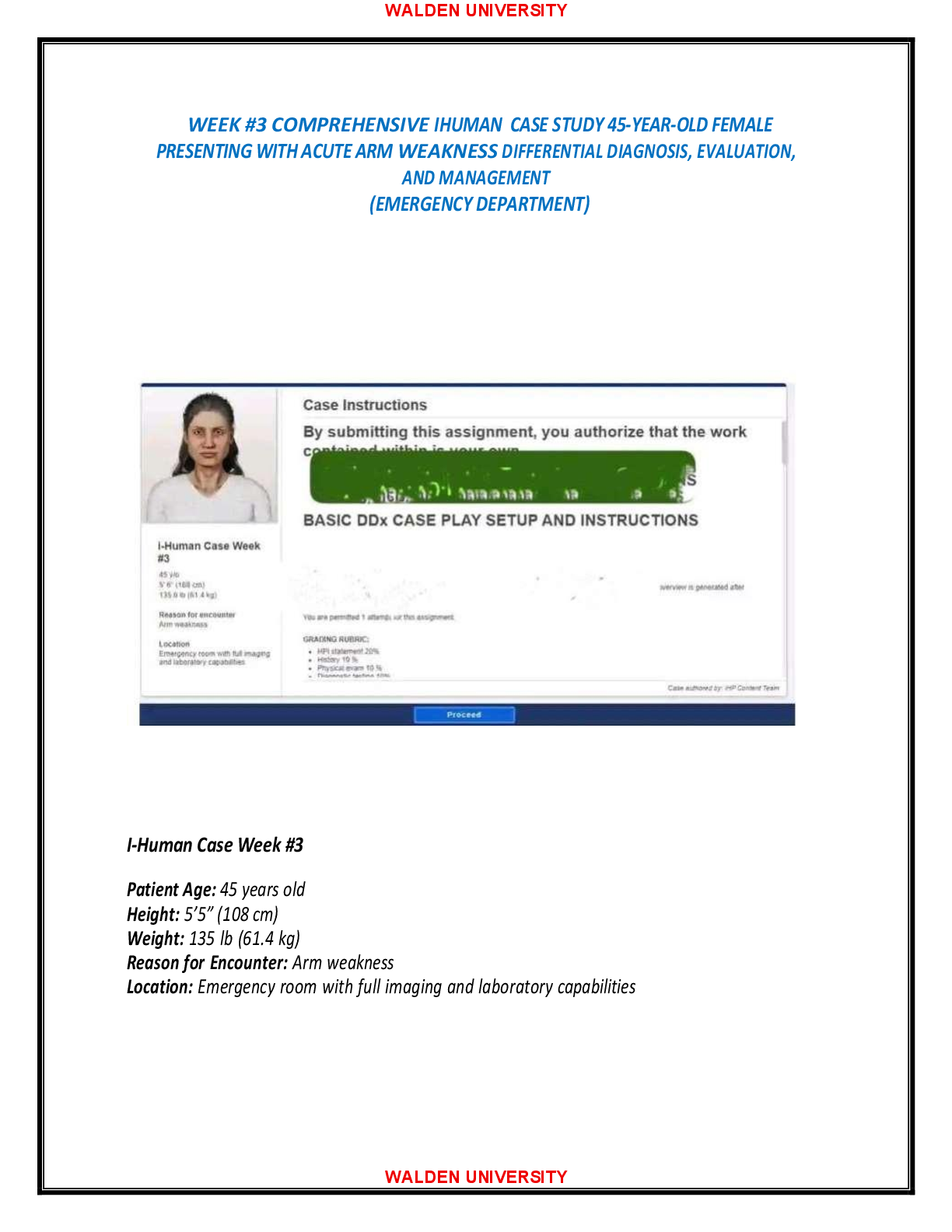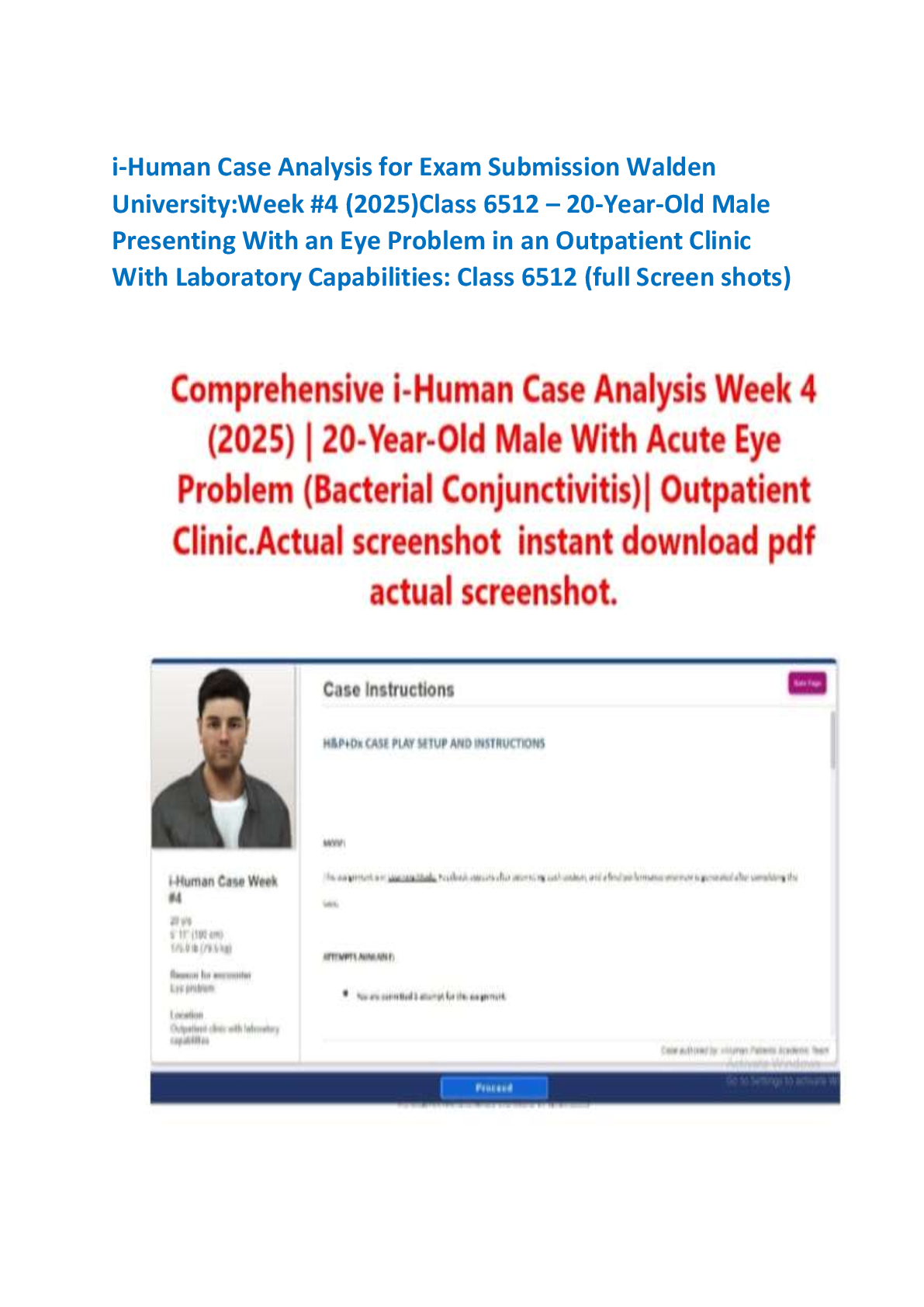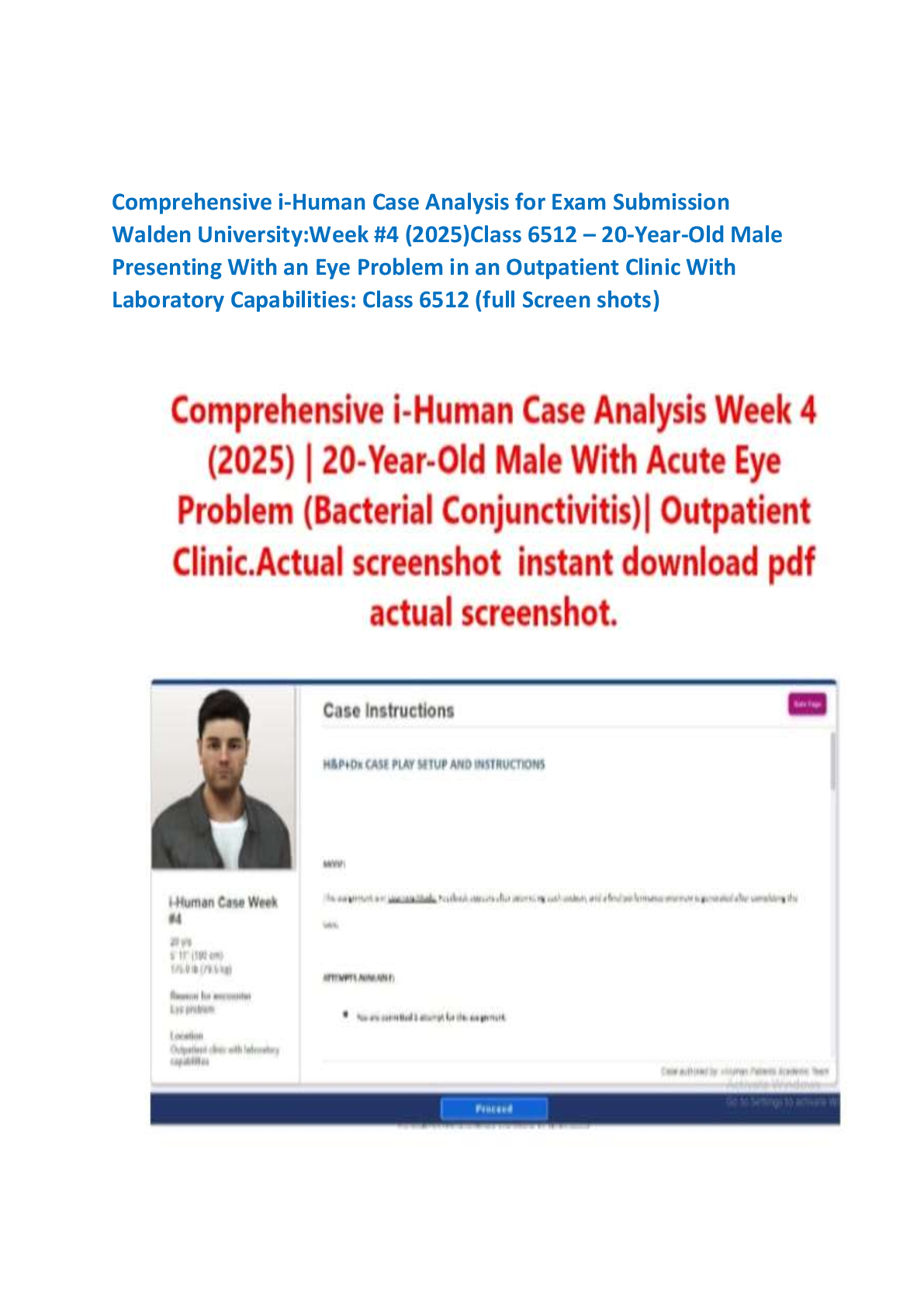*NURSING > CASE STUDY > NR 565 Week 2 Assignment: State Specific Guidelines for Prescribing Controlled Substances: Kentucky (All)
NR 565 Week 2 Assignment: State Specific Guidelines for Prescribing Controlled Substances: Kentucky (GRADED A)
Document Content and Description Below
Kentucky Guidelines for Prescribing Controlled Substances Chamberlain University NR565: Advanced Pharmacology Fundamentals Kentucky Guidelines for Prescribing Controlled Substances In l ... ieu of the current opioid epidemic, individual states, such as Kentucky, have set in place guidelines for the treatment of acute and chronic pain. These guidelines aid in prescribing pain medications to properly treat the patient’s pain, educate them on the use of pain medications, and decrease the rate of addiction related to pain medication therapy. This paper will discuss the guidelines and recommendations for the state of Kentucky, laws on prescribing controlled substances in Kentucky as a nurse practitioner, and Kentucky’s Prescription Drug Monitoring Program. State Specific Guidelines and Recommendations The Kentucky Board of Nursing and the Kentucky Board of Pharmacy provides many resources to guide pain management therapy and education. Once on either page, one may use the search bar to browse through the webpage and search guidelines specific to the type or cause of pain for the patient. Both sites also outline prescriptive authority for the nurse practitioner and recommendations on the quantity prescribed and presence of refills. The Kentucky Board of Nursing and Kentucky Board of Pharmacy guidelines were created to provide a scholarly site for dispensers to access and gain information safe to use in practice that aligns with state laws and regulations. https://pharmacy.ky.gov/Pages/search.aspx? terms=prescribing+pain+medications&affiliateId=pharmacy.ky.gov https://kbn.ky.gov/Pages/Search-Results.aspx? terms=pain+treatment+guidelines&affiliateId=kbn.ky.gov Resources, Groups, and Organizations The state of Kentucky has developed the KORE initiative to target Kentucky’s opioid crisis. The Kentucky Opioid Response Effort (2020) expands access to evidence‐based opioid treatment, prevention and recovery. However, organizations other than the Kentucky Board of Nursing did not provide sufficient prescribing information adequate to serve as a guideline. The American Association of Pain Medication (2020), formerly joined with the American Pain Society, provides guidelines for prescribers to guide clinical care for the treatment of pain. The guidelines discuss evidence-based recommendations for the treatment of acute and chronic pain and the use of lab testing to monitor drug use and ways to improve access to care during the recent COVID-19 pandemic. Specific Laws on Controlled Substance Prescribing for the Nurse Practitioner In the state of Kentucky, an Advanced Practice Registered Nurse (APRN), one must have an MSN or higher degree from a nationally accredited program, earn national certification and pass the state licensure exam. Once licensed, an APRN must complete a specified number of credentialing units annually along with paying to renew their license. The Kentucky Board of Nursing (2020) included that APRNs are required to earn five contact hours of pharmacology each renewal period as well as meeting the criteria for Registered Nurses and maintaining an active RN license. According to the American Association of Nurse Practitioners (2020), Kentucky law reduces full practice authority. With a reduced scope of practice, APRNs are not allowed to diagnose, treat, order, interpret diagnostic tests or prescribe medications independently without a collaborative agreement from an outside health discipline. The reduced practice in Kentucky is the medium between having the ability to practice at the fullest extent of their license or being restricted to only practicing under the direct supervision of a licensed physician. The idea of reduced practice contributes with the prescriptive authority of nurse practitioners in Kentucky in the way that they must obtain a written collaborative agreement with a physician licensed in Kentucky, the CAPA-NS form, to prescribe non-scheduled legend drugs to their patients. Once an APRN has practiced one year in the state of Kentucky in good standing, the Kentucky Board of Nursing (2020) allows APRNs to prescribe schedules II through V controlled substances by obtaining a Controlled Substance Registration Certificate through the U.S. Drug Enforcement Agency and submitting a Collaborative Agreement for the Advanced Practice Registered Nurse's Prescriptive Authority of Controlled Substances (CAPA-CS) with a physician licensed in Kentucky. The CAPA-CS will describe limitations on the controlled substances which may be prescribed by APRN. The KBN (2020) states that medications such as Diazepam, clonazepam, lorazepam, carisoprodol, combination hydrocodone in liquid or solid and alprazolam can only be written in a thirty-day supply without any refills. State Prescription Drug Monitoring Program (PDMP) The Kentucky Cabinet for Health and Family Services created the Controlled Substances Associated Administrative Regulations for mandatory reporting of prescribing controlled drugs to the KASPER program to intervene with patients abusing controlled substances and to allow law enforcement to intervene with controlled substance diversion. The Kentucky All Schedule Prescription Electronic Reporting System KASPER is Kentucky’s program to monitor prescription of controlled substances. KASPER was created by the Cabinet for Health and Family Services. KASPER is meant to help health care providers identify patients at risk of a substance use disorder, and to assist authorized law enforcement and regulatory agencies with drug investigations (KASPER, 2020). Kentucky requires prescribers to report any schedule II through V to KASPER that is dispensed in the state of Kentucky. All dispensers licensed by the Kentucky Board of Pharmacy that have a DEA license must register as KASPER data reporter. Reports must be made no later than the end of the business day that the medication is dispensed. A prescriber must create a KASPER online gateway account to upload and report data as well as viewing database information regarding patients. Upon uploading this information, the KASPER program will flag the prescriber to alert them of any discrepancies in the prescription. Information regarding Kentucky’s PDMP can be found at this website: https://ekasperupload.chfs.ky.gov/KASPER_Controlled_Substance_Reporting_Guide.pdf Conclusion The Kentucky Board of Nursing provides adequate information proper for use in clinical practice to guide pain management. With a surge in the opioid crisis, Kentucky started the KORE initiative to support patients addicted to opioids with the goal of decreasing the rate of addiction. However, national organizations, such as the American Association of Pain Medication, aid in effort to inform prescribers of safe guidelines to pain management. Since the initiation of Kentucky’s Prescription Drug Monitoring Program KASPER, it is now required for all prescribers to report dispensing all controlled substances. To help prescribers monitor patients abusing controlled substances. A nurse practitioner should be aware of these resources, as well of the prescriptive authority outlined above, to properly treat patient’s pain and provide high-quality care driven by evidence-based practice. References American Academy of Pain Medication. (2020). AAPM pain treatment guidelines. Retrieved September 12, 2020 from https://painmed.org/clinician-resources/clinical-guidelines American Association of Nurse Practitioners. (2020). State practice environment. Retrieved September 11, 2019 from https://www.aanp.org/advocacy/state/state-practice- environment KASPER Controlled Substance Reporting Guide. (2020). Cabinet for Health and Family Services. Retrieved September 12, 2020 from https://ekasperupload.chfs.ky.gov/KASPER_Controlled_Substance_Reporting_Guide.pdf Kentucky Board of Nursing. (2020). APRN practice. Retrieved September 11, 2019 from https://kbn.ky.gov/practice/Pages/aprn_practice.aspx Kentucky Opioid Response Effort. (2020). Cabinet for Health and Family Services. Retrieved September 12, 2020 from https://chfs.ky.gov/agencies/dbhdid/Documents/KORE%20One %20Page%20Overview.pdf [Show More]
Last updated: 3 years ago
Preview 1 out of 6 pages
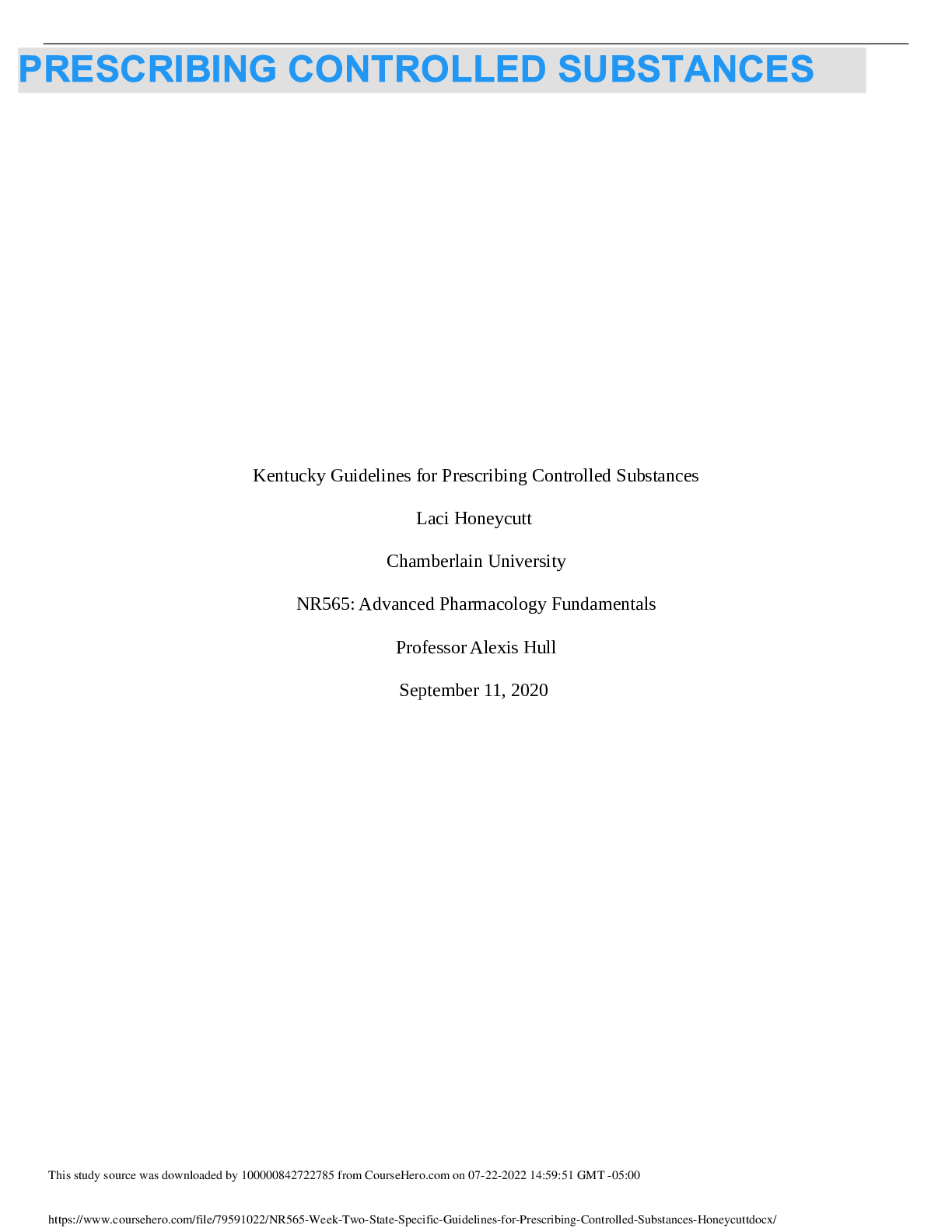
Buy this document to get the full access instantly
Instant Download Access after purchase
Buy NowInstant download
We Accept:

Also available in bundle (1)
Click Below to Access Bundle(s)
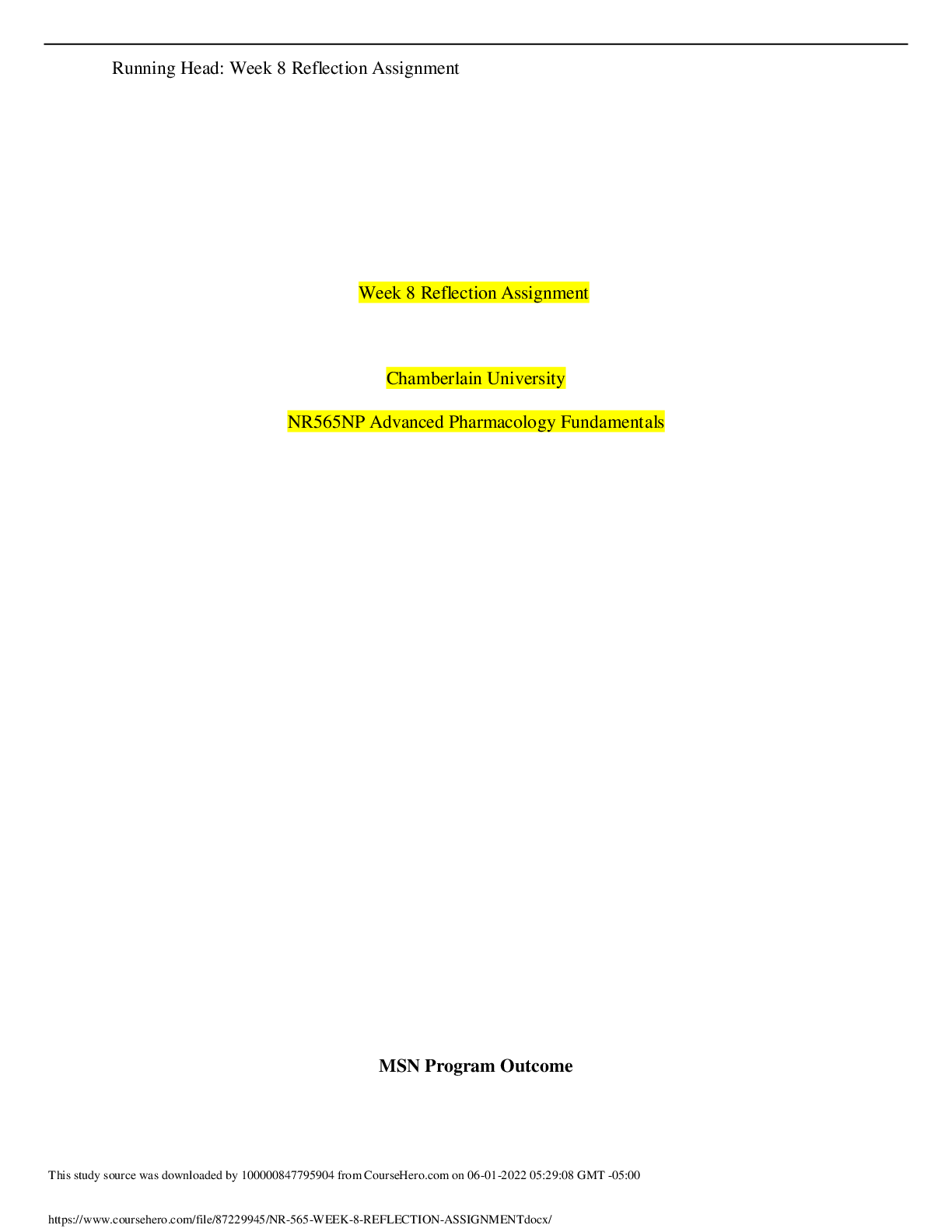
NR 565 Advanced Pharmacology Fundamentals/ Entire Course Week 1 – 8 BUNDLE | TOP RATED | 100% CORRECT SOLUTIONS
NR 565 Week 1 Introduction Discussion NR-565 Week 1 Discussion: Pharmacogenomics (Original Post, Peer Response) NR 565 Week 1 Quiz Answer (100% Correct Collection) NR-565 Week 1 Readings: Chapter 2...
By Prof. Goodluck 3 years ago
$12.5
16
Reviews( 0 )
$13.00
Can't find what you want? Try our AI powered Search
Document information
Connected school, study & course
About the document
Uploaded On
May 31, 2022
Number of pages
6
Written in
All
Additional information
This document has been written for:
Uploaded
May 31, 2022
Downloads
0
Views
132




